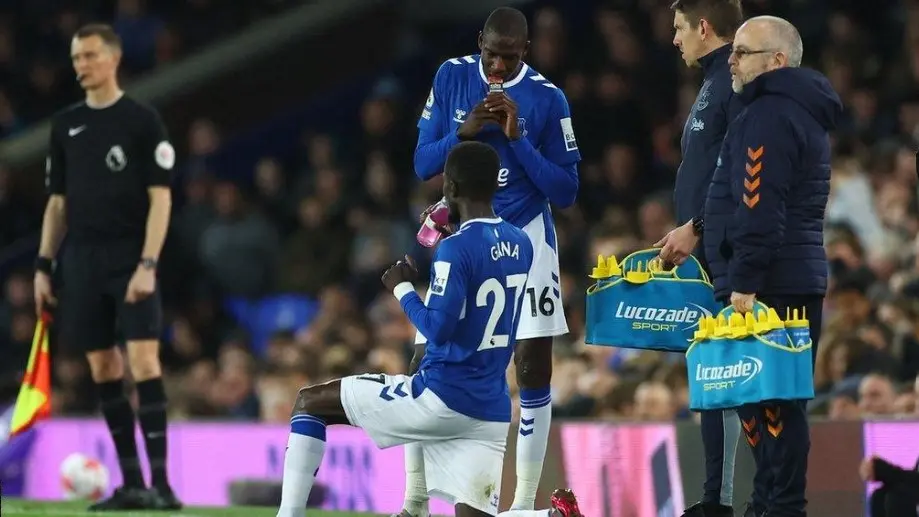
Ramadan is a sacred month for Muslims worldwide, including professional footballers who must balance fasting with peak performance. As they refrain from food and drink from dawn to dusk, maintaining energy and endurance becomes a significant challenge. For those following football matches during this period, SocoliveTV provides a seamless livestreaming experience to keep up with every game.
The significance of Ramadan for Muslim footballers
Ramadan is one of the most important religious observances in Islam, requiring fasting, prayer, and spiritual reflection. For Muslim footballers, this month presents unique challenges as they must continue competing at the highest level while fulfilling their religious duties.
Understanding Ramadan and its observances
During Ramadan, Muslims fast from sunrise (suhoor) to sunset (iftar), refraining from eating, drinking, and even consuming supplements. The purpose is to practice self-discipline, gratitude, and devotion to God. This daily routine can be particularly demanding for professional athletes, who rely on constant hydration and nutrition to maintain their performance.
Read Next: Premier League Soccer Standings
Challenges of fasting while playing professional football
Fasting impacts energy levels, muscle recovery, and hydration, all of which are crucial in high-intensity sports like football. Players often experience fatigue during late-stage matches, and recovery between games becomes more difficult. Additionally, the timing of Ramadan can vary each year, sometimes coinciding with key fixtures in major leagues and tournaments.
How Muslim footballers adapt during Ramadan
To manage the physical toll of fasting while maintaining peak performance, Muslim footballers adopt strategic approaches. These adaptations often involve changes in diet, training schedules, and personalized performance management.
Nutritional strategies for optimal performance
Dietitians play a crucial role in helping players maintain energy levels. The suhoor meal is designed to provide slow-digesting proteins, complex carbohydrates, and healthy fats to sustain them throughout the day. Iftar, the meal that breaks the fast, is carefully planned to restore energy quickly while ensuring proper digestion before late-night training sessions. Hydration is another key focus, with players consuming electrolyte-rich fluids to compensate for lost water during fasting hours.
Adjustments in training schedules and match preparation
Football clubs often make accommodations for their fasting players, adjusting training times to either early in the morning after suhoor or later at night after iftar. Match preparation also changes, with some players opting to break their fast during halftime when games fall within fasting hours. Sports science experts work closely with coaching staff to monitor workload and prevent injuries caused by fatigue.
The role of sports science in managing performance
Advanced sports science plays a vital role in helping players maintain their fitness while fasting. Clubs employ strategies such as cryotherapy, massage therapy, and hydration plans to optimize recovery. Some leagues, like the Premier League, even allow in-game breaks for Muslim players to hydrate after sunset. These scientific interventions ensure that players remain competitive despite fasting.
Notable Muslim footballers and their Ramadan experience
Many world-class footballers observe Ramadan while continuing to perform at the highest level. Their experiences highlight both the challenges and the triumphs of balancing faith with football.
Success stories of elite Muslim players during Ramadan
Several world-class footballers have showcased extraordinary performances during Ramadan, proving that religious commitment does not hinder professional excellence. One of the most well-known examples is Mohamed Salah, the Liverpool forward whose dedication to his faith is as strong as his commitment to football.
Salah has been seen fasting even on match days, breaking his fast moments before kickoff when sunset coincides with games. His energy levels remain impressive, and his ability to score crucial goals during Ramadan has inspired millions of fans worldwide.
One of the most challenging tests of playing while fasting came during the 2014 FIFA World Cup, which coincided with Ramadan. Players like Mesut Özil, Paul Pogba, and Moussa Sissoko had to carefully manage their fasting schedules while representing their nations on the world’s biggest football stage. Some players opted for religious exemptions, as Islam allows those engaged in physically demanding work to postpone their fasts, while others continued to observe Ramadan throughout the tournament. Their ability to compete at such a high level despite fasting demonstrated incredible dedication and adaptability.
How clubs and football organizations support Muslim players
Football clubs and governing bodies have increasingly recognized the needs of fasting players. Some teams provide nutritionists specializing in Ramadan diets, while others adjust training schedules to accommodate religious commitments. In recent years, FIFA and domestic leagues have allowed mid-game hydration breaks, ensuring that fasting players can maintain their performance levels without compromising their beliefs. This growing awareness and support reflect the inclusivity of modern football.
Conclusion
Ramadan presents both spiritual and physical challenges for Muslim footballers, but with careful preparation, they continue to compete at the highest level. Through optimized nutrition, training adjustments, and support from clubs, many players successfully balance their faith with their profession.
Also Read-The Jalwa Game Experience: Strategies for Maximum Rewards